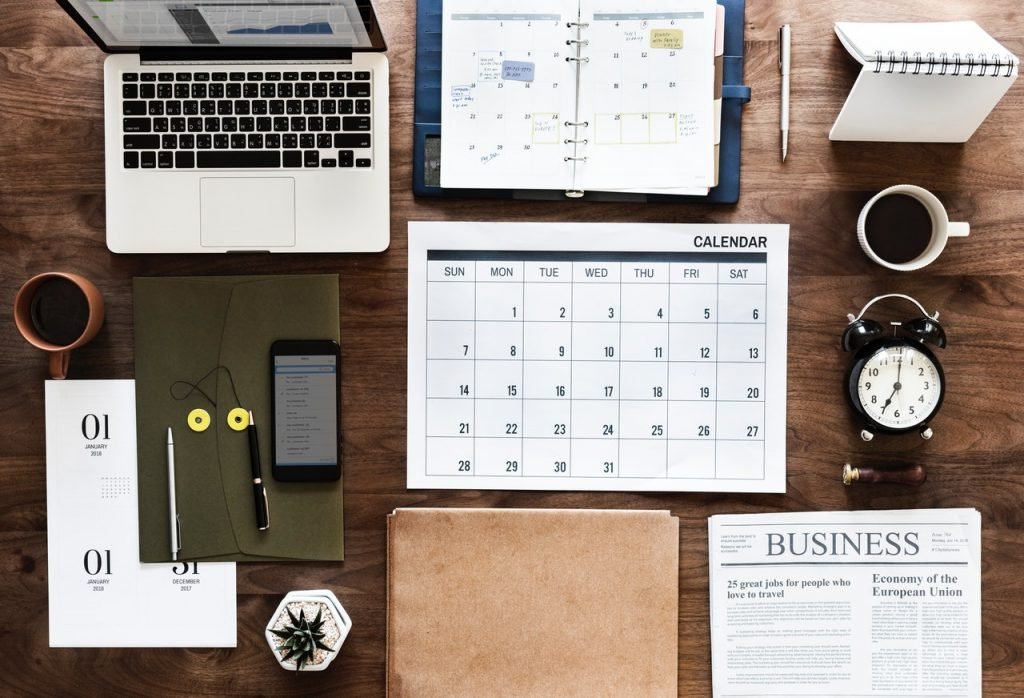The early bird catches the worm. At least that’s what we’ve been told. The moral? Always be early if you want the best of the lot. There's a lot of talk about having to be an early bird to be successful in business. Is this just a myth or is there some merit to getting up before the crack of dawn?
There are 2 sides to this coin. Common discussions about the habits of highly successful people suggest that getting up at the crack of dawn is the best way to start your day. That’s the time that you should be exercising, reading a book, meditating and planning for the day ahead. In fact, these principles form the premise of Tom Corley’s book Change Your Habits, Change Your Life which is based on the results of his survey of 177 self-made millionaires.
Let’s look at the other side of the coin. This is the side where having a true sense of the time of the day when you work best (your peak hours) is important. The truth is that it really doesn’t matter when you get work done; what matters is that it gets done before the deadline. Some people work best in the morning, others in the afternoon and others in the night. Here’s a breakdown of how to identify your peak hours.
How to Identify Your Daily Peak Hours
Listen to your body.
When do you feel most alert and excited? Put your theory to the test by completing the proceeding steps.
Run a 3 Week Experiment
Choose a 3 week period to run your experiment. Three weeks is a good time frame to carry out the experiment because you’ll be better able to identify patterns. The key here is consistency; don’t give up on the experiment! Remove any mood or energy enhancers, such as coffee, from your day so that the results aren’t thwarted.
Track Your Time Spend
Track how you spend each hour of each day during the 3 week period. Use a spreadsheet to record your energy, motivation and focus (EMF) by using a 1 to 5 rating scale for each criterion. Here’s a breakdown of what each number represents:
-
- 1- Very Low
- 2- Low
- 3- Neutral
- 4- High
- 5- Very High
Pro Tip
Install and sync time and activity tracking software/apps on your phone, mobile devices and computer.
Use Time and Activity Tracking Software/Apps
Track how you spend your time and the activities that you complete daily using time and activity tracking software such as Rescue Time and Toggl.
Mix It Up a Bit
Try different strategies to determine what helps you be most productive. You could try changing one variable each week to determine which has the most impact. Here are some possible variables:
-
- Wake up an hour earlier.
- Meditate.
- Exercise.
- Vary the length of the breaks that you take.
Calculate Your Average EMF Score
Use your spreadsheet to calculate the average energy, motivation and focus for each one hour period during the week. For instance, take the average of each metric for the 8am to 9am time slot for each day in that week. Do this for all the hour-long time slots and identify the highest values.
Evaluate
Reflect on the results at the end of each week. Do you notice any patterns? What helped boost my energy, motivation and focus? Identify what works best and make it a part of your daily routine.
Are Peak Hours the Only Thing to Consider?
Remember that there are 2 sides to the coin. One side deals with forming good habits by making the best use of every waking moment. The other requires special consideration for the hours when you work best. Combining these 2 seemingly contradicting thoughts results in this equation:
Good Habits+Good Use of Peak Hours= Productivity2
You’ll get the most work done during your peak hours. However, there are some strategies that you can use to get the most out of any time of the day. Here are a few to get you started.
Strategies to Make the Best Use of Each Waking Moment

Get Enough Sleep
Sleep isn’t overrated. It’s important for 5 main reasons:
- Your body is working to improve your brain function while you sleep.
- Lack of sleep can negatively affect the way you work and learn.
- Sleep helps your brain form new pathways for learning and remembering information.
- Your heart and blood vessels are repaired while you sleep. Please note that this doesn’t mean that sleep cures heart disease.
- Your immune system responds more effectively when you get enough sleep.
It is recommended that adults who are 18 years or older should get 7 to 8 hours of sleep daily. So, going to bed at 2am to wake up at 5am is really a recipe for disaster.
On the flip side, too much sleep can also have negative consequences. But who really struggles with that?
Take Regular Breaks
Lost productivity tends to be the result of trying to get too much done in a short space of time. You aren’t a superhero! There’s only so much that you can do within 90 minutes and no more. It’s important to take at least a 5 minute break every 60 to 90 minutes. A productivity app, such as Pawductivity, can help you keep focused on the task and keep track of when you should take a break.
Pro Tip
Set an alarm on your phone to remind you to take a break. Get up, walk around - step away from your workstation.
Plan Daily Tasks Accordingly
Knowing your peak hours enables you to plan daily tasks with those hours in mind. Here’s what your should do to get the most out of your daily plan:
- Tasks that require a high level of focus should be completed during peak hours.
- Meditate or take a 20 minute nap at times when your energy levels are low.
- Take short breaks (no longer than 5 minutes) more frequently during your less productive hours.
- Place your daily task list prominently on your desk so that you can keep track at how successful you’ve been at getting things done.
- Be realistic about the number of tasks that you can complete. Use the weekend to get a clear picture of everything that you need to accomplish in the upcoming week and then plan your days accordingly.
Delegate! Delegate! Delegate!
Stop trying to do everything yourself! No man is an island; you’re probably overwhelmed by everything you need to do because you’re trying to do everything yourself. Virtual A Team has a team of experienced freelancers who can help you in virtually any area of business. Let us help you get more done and free up your time so that you can focus more on growing your business.
Download our Ultimate Guide to Delegating for More Tips & Tools on How to Delegate as a Solopreneur

Remove Clutter
A cluttered environment can negatively impact your productivity. Cate Palmer states that, “A cluttered desk or office can negatively affect your mood, resilience and ability to work productively, and disorder creates stress which can cause low moods.” Here are some tips to help you get rid of clutter:
- Reorganize your workplace by getting rid of unnecessary files and knick-knacks and putting items in logical places.
- Organize the files on your computer and other digital devices so that they are easy to find.
- Create a daily to-do list to avoid mental clutter.
Group Similar Tasks
It can be difficult to toggle between dissimilar tasks. There is that period between ending one task and starting another that can cause our minds to get distracted. This distraction can be minimized if you group similar tasks together. For instance, set aside time in your day to read and respond to all your emails instead of reading an email every 5 minutes.
Get an Accountability Partner
There’s nothing better than knowing you have someone in your corner. An accountability partner can help you keep on track. Find someone who will motivate you and not knock you down because you’ve failed. Be open with the person and listen to the constructive criticism shared.

Take Care of Your Body
Neglect your body and you’ll experience lethargy, headaches and declining physical health. Sure, there’s a heck of a lot that you have to complete as a busy entrepreneur. However, getting things done should never be at the expense of your health. Here are some things that you should do to take care of your body despite your hectic schedule:
- Drink enough water.
- Avoid sugar.
- Eat at least 5 servings of fruits and vegetables daily.
- Avoid unhealthy snacks.
- Exercise even if it’s only for 30 minutes each day.
Add Light to Your Workspace
City University London reports that “lighting is one of several factors that combine to create healthy work environments that in turn help promote employee engagement, well-being and productivity.” A well-lit workspace is important for your productivity. It’s great to have a lot of windows in your office that allow natural light to enter. However, those who live up north know that sunlight disappears very early during the winter months. Therefore, it’s a good idea to have a ring light or bright lamp in your office to add the right amount of light to the area.
Phases of the Moon Cycle
Have you ever felt like you weren’t an early bird or a night owl. Do you sometimes feel like you can work really well for a few weeks and then crash hard for a week? This concept has been popular in spiritual circles for millennia and is now gaining ground in the mainstream.
Our society is built around the phases of the sun. We get up at a certain time of day, have a specific daily routine and then go to bed. Rinse and repeat each day.
What if we built our routines around the phases of the moon instead? By tracking the 8 phases of the moon and planning key activities around when you are best during those phases, you can dramatically improve your productivity.
Which leads us to another important moon cycle.
Pay Attention to Your Menstrual Cycle
Although this issue specifically relates to women, it’s important to mention here because of the tremendous impact it has on a woman’s productivity. There are some women who are fortunate enough to avoid the negative effects of a period. However, most women experience at least one or a combination of the following symptoms:
- Stomach cramps
- Back pain
- Bloating
- Mood swings
- Fatigue
- Dizziness
Know your menstrual cycle and learn how to adjust your work schedule so that you can deal with the side effects. For instance, some women experience severe pain during the first 1 or 2 days of their periods. The pain may be debilitating thus preventing her from doing any work. However, there’s work to be done so it may mean that she has to delegate some tasks or communicate with her clients to let them know what’s happening. It may also mean that she needs to consult with a doctor to find a way to manage the pain.
Putting it All Together
You don’t need to be an early bird in order to be productive. It’s more important to do the most strenuous tasks during your peak hours. Nevertheless, you should form good habits to make the most of each waking moment if you want to be successful. One of the things that you should do is delegate. Virtual A Team has the right experts to help you complete your tasks. Contact us today to learn more.
Reading List
Want even more? Here’s our Reading List to help you improve your productivity around peak times of day:
The Power of When: Discover Your Chronotype by Michael Breuss
Lunar Abundance by Ezzie Spencer
Change Your Habits, Change Your Life by Thomas Corley
Don't stop now! You'll also love this other great content...




